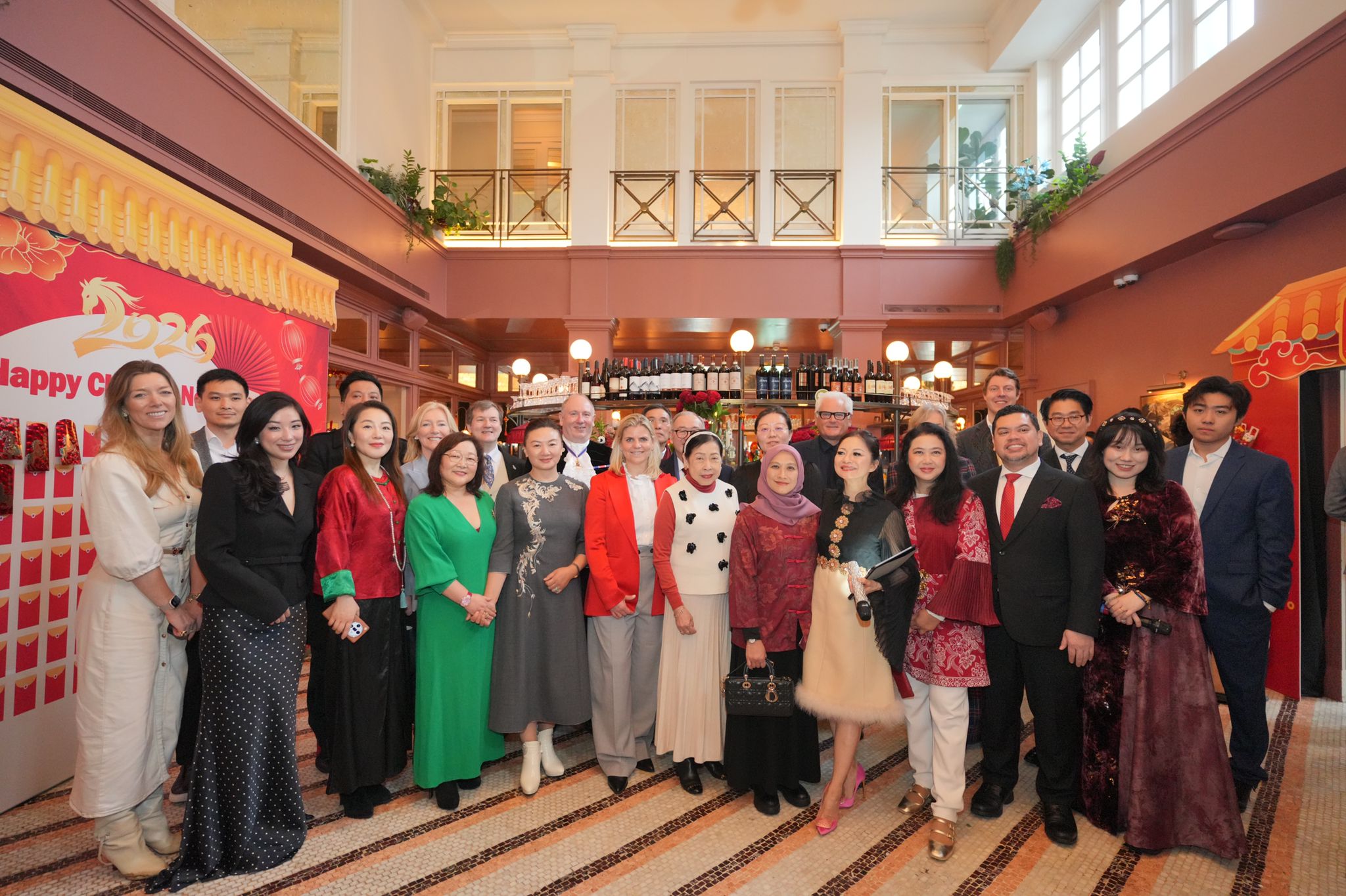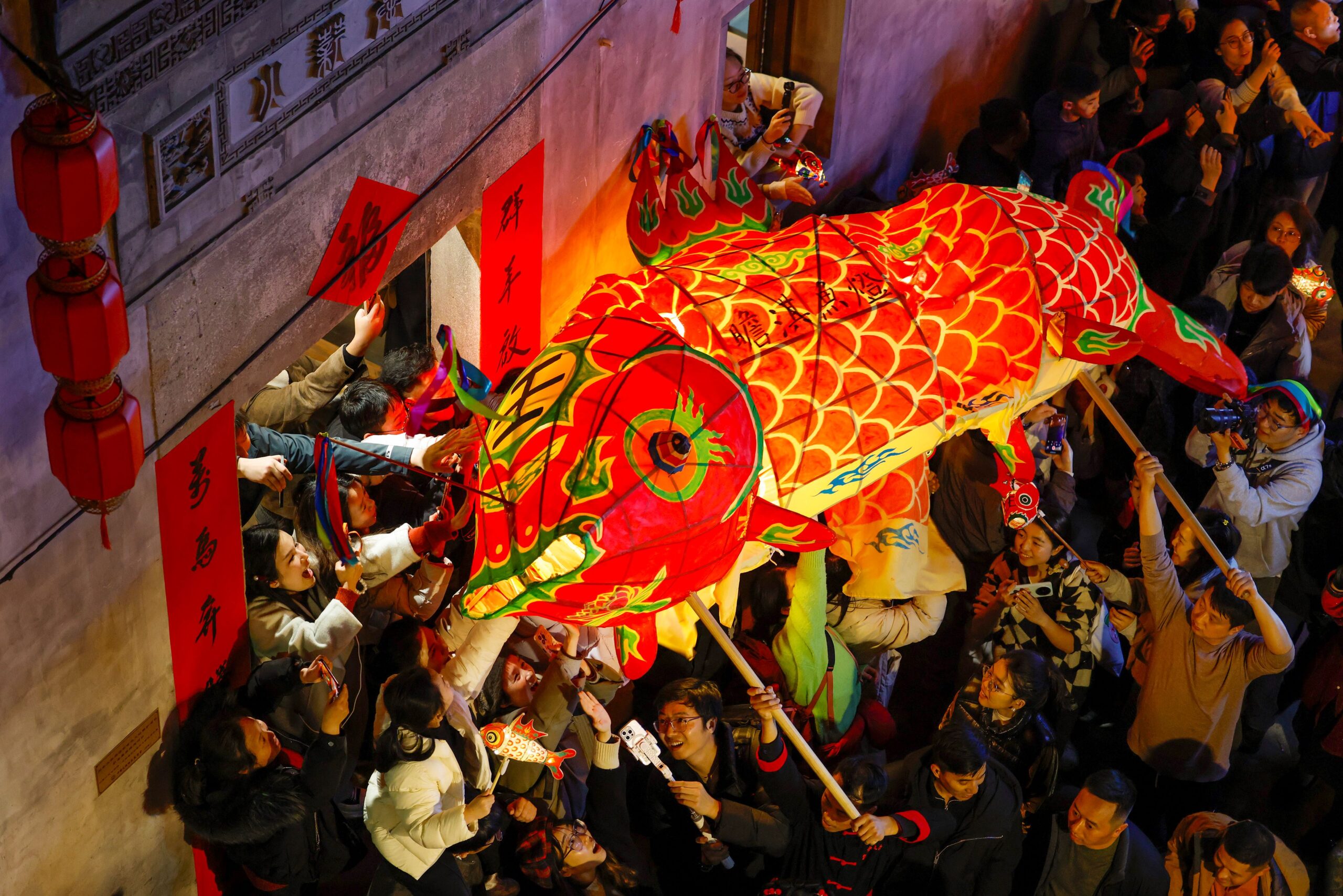Since early May, a monkey at Hefei Wildlife Park in Anhui province has gone viral on Chinese social media.
The male black-capped capuchin, with his jet-black hair and distinct square face, quickly captured public attention. Online users affectionately nicknamed him Dazhuang, meaning “big and strong.”
For ten years, Dazhuang lived at the zoo without much notice. The change occured during the May Day holiday, when a visitor shared a video of him on Douyin, China’s version of TikTok.
Notably, Dazhuang’s square-shaped face reminded viewers of the Chinese character guo (国), which means “country” and often describes square human faces. As a result, fans dubbed him the “guo-character-face monkey.”

Wang Huihui, a staff member of the zoo, explained that Dazhuang and a younger male arrived here from Hangzhou Safari Park in Zhejiang province in 2015.
In 2023, the zoo introduced a female capuchin from Wuxi Wildlife Park in Jiangsu province. In April 2024, she gave birth to Dazhuang’s baby, further boosting his popularity.
People named the female monkey Xiaomei, or “little beautiful,” and often refer to her as Dazhuang’s “wife.” They now call the younger male Xiaoshuai, or “small handsome,” and consider him Dazhuang’s “brother.”
Visitors frequently observe Dazhuang grooming Xiaomei as she cradles their baby. Consequently, fans began calling their relationship “the happy life of Dazhuang.”
Although some online users describe Dazhuang as “ugly-cute,” his keeper, Zhang Chunxue, disagrees. “Among black-capped capuchins, the alpha male usually has a squarer face and a larger build,” Zhang explained, “By those standards, Dazhuang is actually very handsome.”
Zhang also highlighted the species’ fascinating traits. These monkeys use their long, flexible tails to support their body weight, freeing their hands for climbing or feeding. Uniquely, they also use tools, such as stones to crack nuts. Zhang described Dazhuang as gentle and slightly shy. “He climbs high and hides whenever strangers approach,” she added.

Internet Celebrities
The rise of animal “internet celebrities” has become increasingly common in China. People admire these animals for their appearance, behavior, or expressive features.
In 2024, a chubby leopard at Panzhihua Wildlife Park in Sichuan went viral when viewers compared it to the “leopard officer” from Zootopia.
Earlier this year, Dudu and Huahua, a pair of white-faced saki monkeys from Nanjing Hongshan Forest Zoo, gained online fame. Their newborn, still unnamed, has also attracted attention.
Back in 2023, viewers nicknamed a round fox at Yunnan Wildlife Park “Gas Tank.” Similarly, in 2020, two plump pandas at Hainan Wildlife Park sparked a playful “weight-loss” campaign at the zoo.
According to Hefei resident Pan Yuyu, the trend reflects China’s deep affection for animals. Meanwhile, Zhou Liliang, general manager of Hefei Wildlife Park, emphasized the zoo’s efforts to preserve Dazhuang’s environment while managing the growing crowds drawn by his fame.

Written by Yi Shen, additional reporting by Ecns and China Daily.
If you liked this article why not read: Hamilton Makes a Comeback on Chinese Social Media










